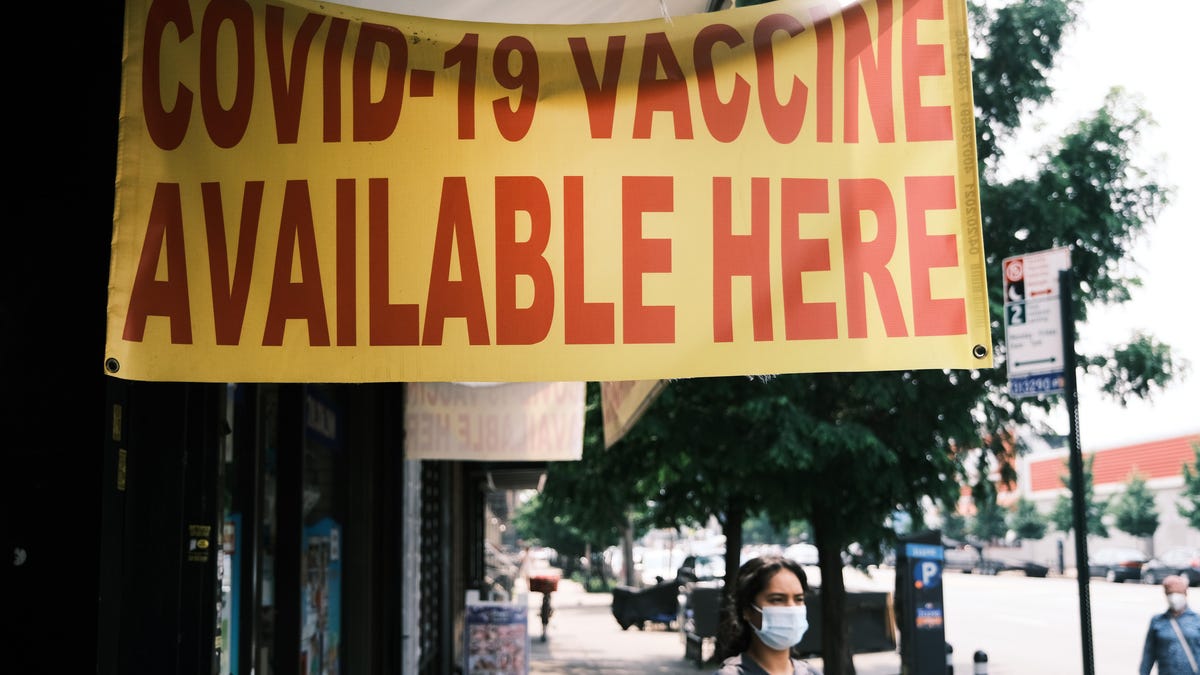New York City, California and the federal government issue vaccine mandates for employees
Biden followed the lead of New York City, California and the VA Thursday when he announced all federal employees must get a COVID vaccine or face weekly testing.

As COVID cases, hospitalizations and deaths rise with the spread of the highly contagious delta variant, which accounts for about 83% of recent COVID cases, some government bodies -- including the federal government -- have responded by issuing vaccine mandates for their employees, or requiring employees to get tested for COVID regularly.
The Veterans Administration, a federal government agency that provides health care and other services to military veterans, will require all health care workers to get vaccinated against COVID-19, according to a news release Monday, making it the first federal agency to do so.
Employees included in the mandate are health care workers that are the most "patient-facing," such as doctors, nurses and some specialists, VA Secretary Denis McDonough told the New York Times. Employees will have eight weeks from Wednesday to get fully vaccinated or face penalties, including possible removal, he told the Times.
In recent weeks, four VA employees, all unvaccinated, died from the coronavirus, according to the agency's news release.
Citing the VA's decision, in part, President Joe Biden announced at a briefing Thursday that all federal employees will be required to "attest" that they're vaccinated. Those that choose not to be will face COVID testing at least once a week, wear a mask at all times, practice social distancing and generally won't be allowed to travel for work -- basically, they will continue to practice pandemic public health measures. As far as the military is concerned, Biden told the US Department of Defense to "look into how and when" they'll add a COVID vaccine to the list of already required vaccinations for members of the military.
There are about 4 million people employed by the federal government, the Washington Post reported, making the government the largest employer in the country.
Throughout the pandemic, mask mandates, vaccine rollout plans and other public health measures to combat the coronavirus were mainly conducted by city, county and state governments. In an opinion by the US Department of Justice written on July 6 and posted Monday by CNN, the DOJ determined that federal law doesn't prohibit public or private agencies from issuing vaccine requirements, even if the vaccines have Emergency Use Authorization rather than full FDA approval.
The state of California and New York City also announced vaccine rules earlier in the week. California will require all state employees and health care workers in the state to provide proof of vaccination or get tested for COVID-19 at least once a week, according to an announcement by Gov. Gavin Newsom's office. The policy for state workers will go into effect on Aug. 2, while the policy for health care workers and facilities will go into effect later in the month.
New York Mayor Bill de Blasio announced Monday that municipal workers in the city's five boroughs will either have to get vaccinated or be tested weekly for COVID, starting Sept. 13, the first day of school for New York City public schools.
The new mandate is the same one de Blasio announced last week for New York City's public health care workers, which goes into effect Aug. 2. Workers that decline to either get vaccinated or get weekly COVID testing will be suspended without pay.

